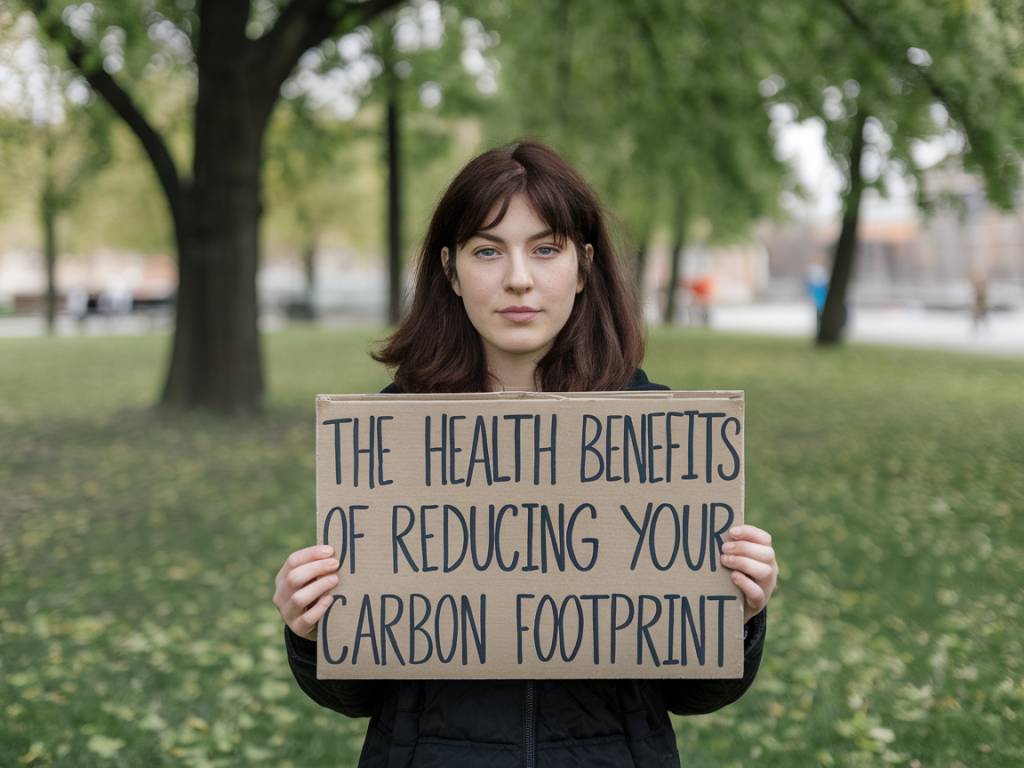The health benefits of reducing your carbon footprint

The health benefits of reducing your carbon footprint
Understanding the Connection Between Carbon Footprint and Health
Have you ever wondered how your daily actions impact not just the planet, but also your own health? It’s a question worth pondering as we navigate through a world rapidly changing due to climate impacts. Reducing your carbon footprint isn’t just about protecting the environment; it’s about safeguarding your well-being too. But what exactly is the connection between these two seemingly disparate concepts?
Your carbon footprint is essentially the total amount of greenhouse gases emitted by your actions, whether it’s driving a car, heating your home, or even the food you consume. These emissions contribute to climate change, which, in turn, affects global public health. But on a personal level, making conscious efforts to reduce your carbon emissions can lead to several health benefits.
Enhancing Physical Health Through Greener Choices
Have you ever considered the health perks of walking or biking instead of driving? It’s a straightforward substitution that slashes your carbon emissions and enriches your life with physical activity. Regular exercise, as we know, is a cornerstone of a healthy lifestyle. It boosts cardiovascular health, reduces risks of chronic illnesses, and enhances mental clarity.
Similarly, opting for public transportation not only limits the carbon footprint but also reduces traffic congestion and lowers air pollution levels in our cities. Cleaner air means fewer respiratory problems for everyone, making it easier to breathe on that morning jog or afternoon stroll.
Nutritious and Sustainable Eating Habits
Consider the difference a plant-based diet can make—not just for the Earth, but for your health as well. Consuming more fruits, vegetables, and whole grains reduces carbon emissions associated with livestock farming, known to be a significant contributor to greenhouse gases. But beyond environmental reasons, plant-based diets are typically lower in saturated fats and higher in essential nutrients.
Adopting such dietary habits can help maintain a healthy weight, reduce chronic disease risks, and improve your overall well-being. And let’s not forget the joy of experimenting with new recipes and flavors—eating sustainably can be a delightful adventure!
Improving Mental Well-being Through Simplicity
How often do you feel overwhelmed by the constant buzz of consumerism? In our quest for convenience, we might neglect the profound effects of material excess on mental health. By choosing to minimize waste, shopping less, and valuing experiences over possessions, individuals often find a sense of freedom and calm.
This minimalist lifestyle, which happens to significantly curb carbon emissions, promotes mental well-being by reducing stress and clutter in our lives. It’s remarkable how living with less can lead to a greater sense of satisfaction and happiness.
The Social Benefits of Lowering Your Carbon Footprint
Reducing your carbon footprint isn’t just beneficial for personal health; it creates a ripple effect within communities. Engaging in environmentally friendly practices often fosters strong community bonds. Have you noticed how community gardens, farmers’ markets, or neighborhood clean-up days bring people together?
These activities encourage social interaction, create a sense of belonging, and promote a healthier community environment. The collective effort towards sustainability strengthens public health systems by fostering an aware and resilient society.
Practical Steps to a Healthier, Lower Carbon Lifestyle
Now that we’ve established the interplay between reducing your carbon footprint and enhancing your health, you may wonder: what’s the best way to start? Here are a few simple yet impactful actions:
- Choose active transportation options like cycling or walking whenever possible.
- Incorporate more plant-based meals into your diet.
- Support local produce to reduce emissions from food transportation.
- Embrace energy-efficient practices at home, such as using LED lighting and unplugging electronics when not in use.
- Participate in community initiatives that focus on sustainability and health.
By making these mindful choices, not only do you contribute to a healthier planet, but you also enhance your own physical and mental well-being. Remember, every small choice adds up, creating a tapestry of positive change for both you and the world we share.







